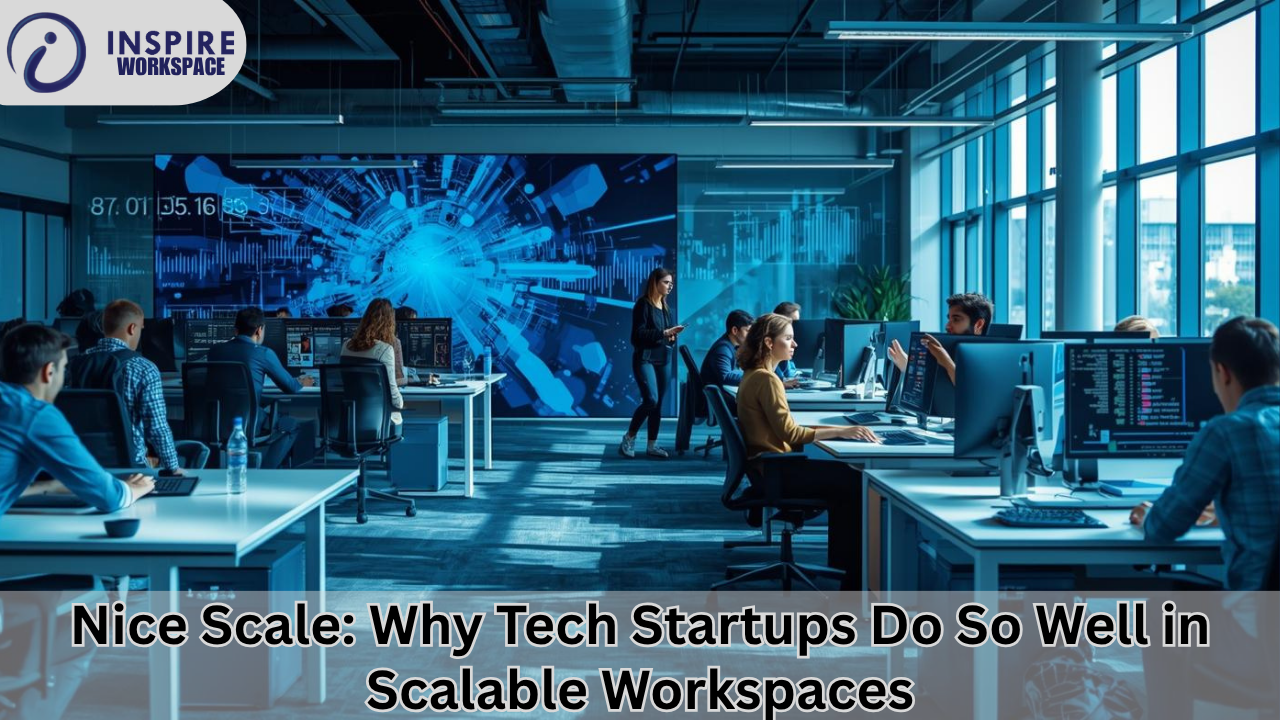Introduction
Tech companies are known for being innovative, mobile and growing fast. Unlike most other businesses, which grow slowly over time, startups are often able to scale fast — sometimes in just a few months. Sitting and working in one is no longer just sitting and working when it can be a vital lever for growth. A team scaled workspace not only nourishes growth and team collaboration, but it also seamlessly accommodates new technology and is flexible – all while mini mising the cost of moving or changing office space.
“The way I see it is, in today’s digital world as competitive as it is, founders are very selective about work environments that help them double-down on their progress rather than detract from it”. This is why operations like coworking spaces, hybrid offices and managed workspaces have boomed in popularity among the tech movers-and-shakers building these two regions up. Let us discover how these flexible workspace solutions enable startups to flourish.
1️⃣ Dynamic Layouts for a Growing Team
Tech startups can be small to begin with — perhaps two to five people working from laptops. But with market validation, or funding, the team can double- or triple-fast. Office spaces that are scaling-friendly with scalable seating options, modular interiors and additional meeting rooms or cabins on behest.
Startups no longer need to move places when they intake more team members, now they can scale inside the building. It saves time, minimizes impact on business operations and enables founders to concentrate on what is important – the product and customers.
2️⃣ Cost Efficiency Without Compromise
Traditional office leases bar businesses from making long-term commitments and force them to absorb heavy upfront costs — furniture, utilities, maintenance, IT setup and the like. This is something that startups on a shoestring budget sometimes can’t afford to take.
And flexible work spaces are marketed all buttons:
✅ Internet
✅ Electricity
✅ Housekeeping
✅ Security
✅ Office equipment
✅ Shared amenities
This fixed cost base provides for greater control of cash-flow. And startups only pay for the space they’re actually using — an enormous financial advantage in early growth years.
3️⃣ Collaboration and Innovation Culture
Tech innovation feeds on ideas — especially when ideas crash into and mingle with the other ways of thinking, doing and making that are practiced by different brains, talents and trades. Coworking and managed offices offer community-centric spaces for startups to engage with the:
Other entrepreneurs
- Designers
- Software developers
- Marketing experts
- Investors
Those interactions can lead to new strategies, partnerships and even hiring prospects. Space providers also offer knowledge sharing in addition to regular events, workshops and networking meet-ups. For tech companies that thrive on creativity, this collaborative ethos becomes a growth multiplier.
4️⃣ Smart Technology & Plug-and-Play Setup
Start-ups require a solid infrastructure from the first day — high-speed internet, secure networks, entry access controls, intelligent meeting rooms and support for remote/hybrid work. Technology First Design Scalable-Friendly workspaces are focused on tech-first design elements, such as:
- Cloud-friendly IT infrastructure
- Video conferencing facilities
- Dedicated server rooms (where required)
- Tech support teams on-site
- Hot desks for distributed teams
This plug-and-play configuration means there’s no need for installation or waiting on complex setup procedures, so employees can get working immediately.
5️⃣ Attracting, Retaining Talent Uplift
The individuals are the heart and soul of any tech startup. Talent today craves dynamic, inspiring environments that express creativity and evolution. Well-planned workspaces, ergonomic furniture, colourful surroundings, breakout areas and recreation zones keep employees happy and motivated while valuing them as a part of their workforce.
A good working environment also enables work-life balance, which can increase retention. When people love coming to the office, teams collaborate better and innovate faster — which leads to stronger business performance.
6️⃣ 20boost of Brand Image for Clients and Investors
Impressions count — particularly when you’re pitching investors or onboarding clients. A well-design workspace enhances the brand of a startup. It is great that the business is future-ready, well organized and has confidence in its growth story.
There are meeting rooms, reception space and tech-enabled presentation set-ups — everything to help startups build the trust and credibility that is often make-or-break for funding or partnership discussions.
7️⃣ Operation Support and Management Load Reduction
At early-stage companies, founders wear a lot of hats — product development, hiring, sales, marketing and customer support. Office Ops shouldn’t be another headache.
Scalable workspace providers often include:
- IT management
- Maintenance & cleaning
- Admin support
- Pantry services
- Utilities handling
This support structure allow us as founders to concentrate 100% on strategy and execution — increasing speed of progress without distractions.
8️⃣ Flexibility for Hybrid and Remote Teams
The 9-to-5 culture of office work is a relic of the past for a lot of today’s workforce, which has largely found itself working on the go. A lot of tech startups operate distributed teams in cities, or even countries. Workspace for flexibility: Make your workspace hybrid ready, with flexible models.
- On-demand meeting rooms
- Shared desk access
- Virtual office services
- Cloud-based security and communication tools
And this flexibility has made it possible for startups to tap into global talent without the need for a huge physical footprint.
9️⃣ Growth-Ready Locations
Virtually all the scalable workspaces are based right in the flutter of business centers with amazing Wi-Fi, public transport links, and across from tech areas. Location plays a role in:
- Client convenience
- Brand visibility
- Employee commuting comfort
- Better hiring opportunities
Location advantage guarantees a startup doesn’t stray from the ecosystem that is contributing to its growth.
Conclusion
Workspace friendly-to-scalability is more than just a physical environment — it’s a strategic business asset for tech startups as they grow and succeed. They provide the ability to scale, evolve and invent without stretching budgets or running into infrastructure restrictions. Featuring pockets of inexpensive workability, digitally oriented infrastructure, a networked community and a productivity-oriented environment – these hotspots serve as engines to propel startups toward achievement.
In the rapidly accelerating tech world, where time-to-market is everything, a scalable workspace solution can be make or break. Startups that do purchase scalability-ready environments will double their ability to move fast, hire the best talent, and wow investors because its products have they have built and hope to build will change the world.




